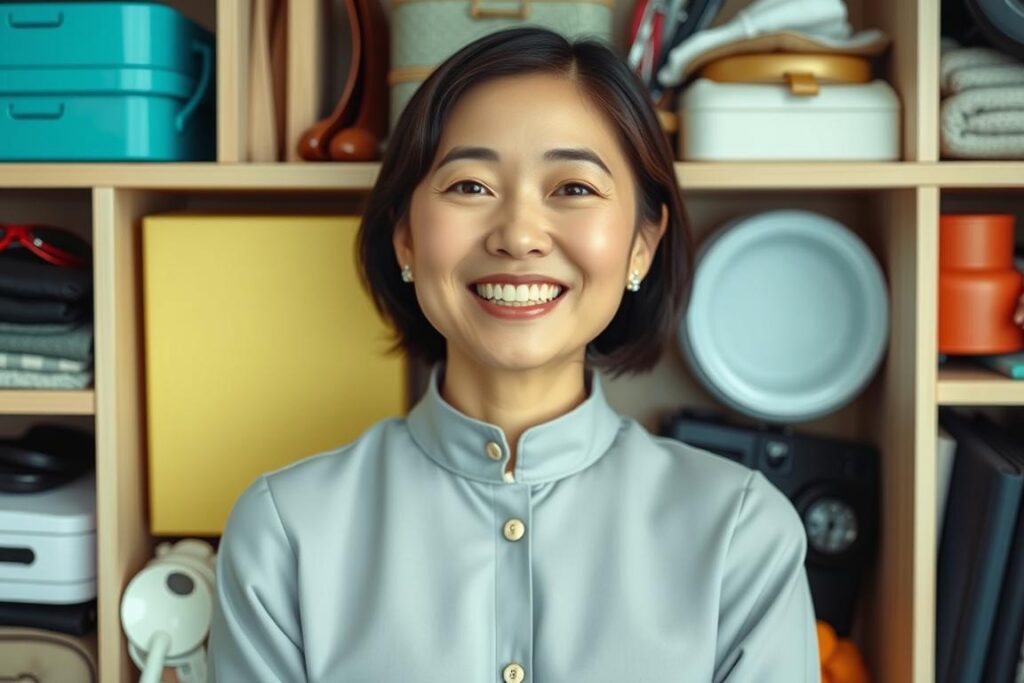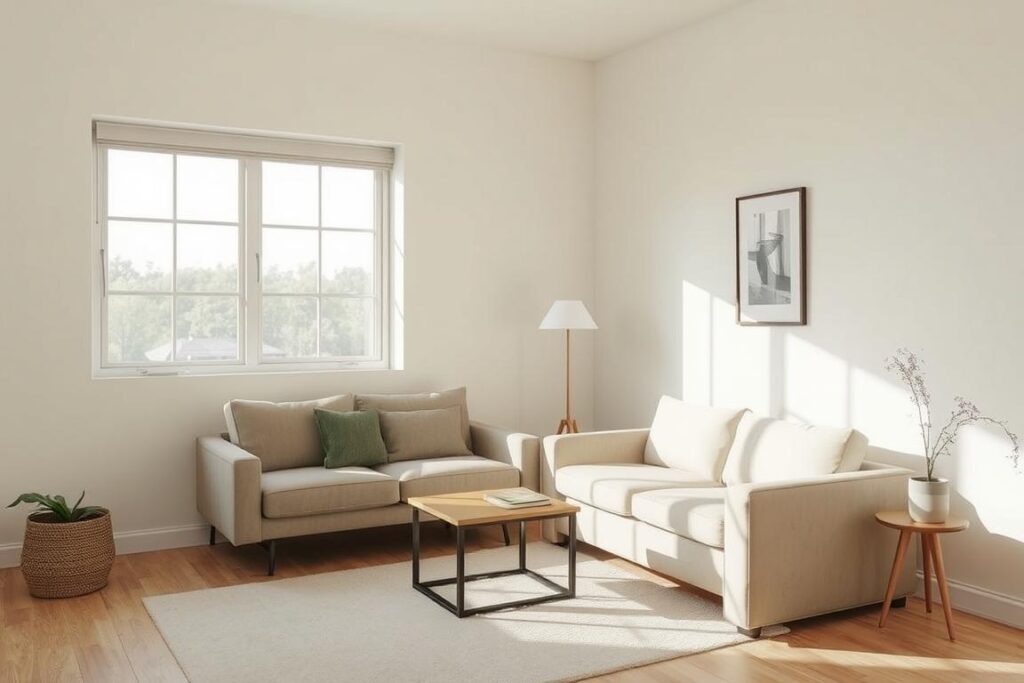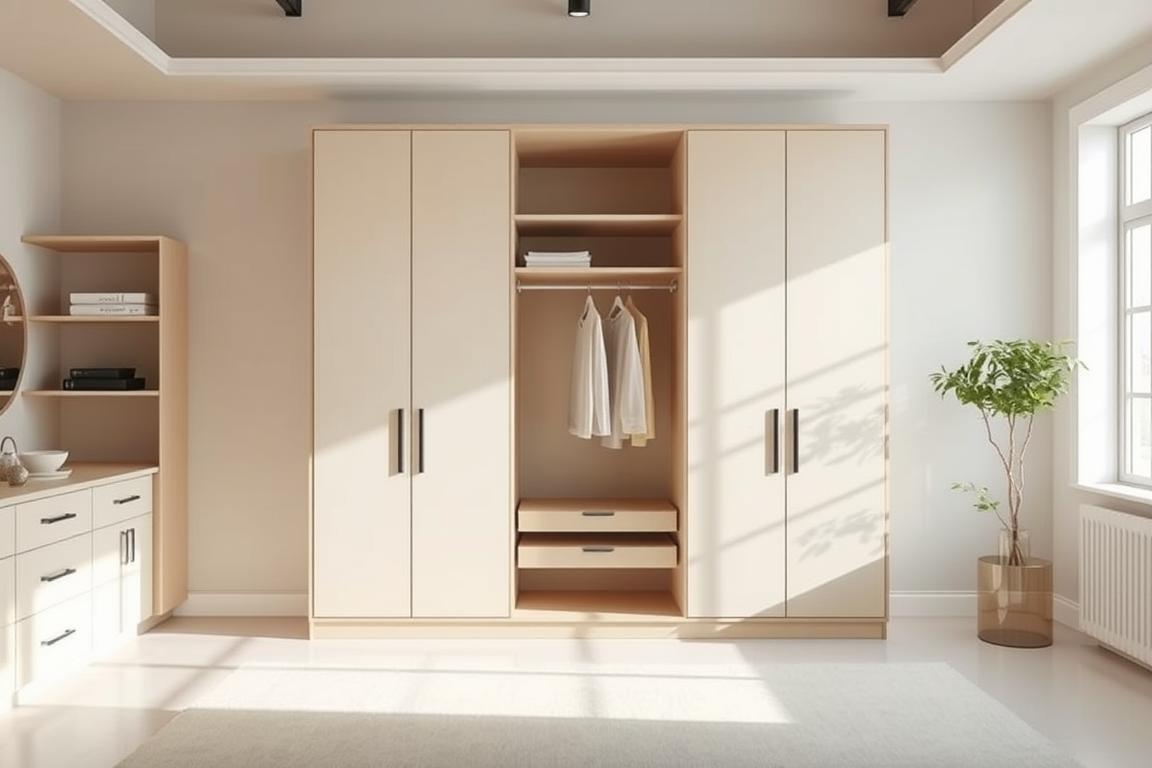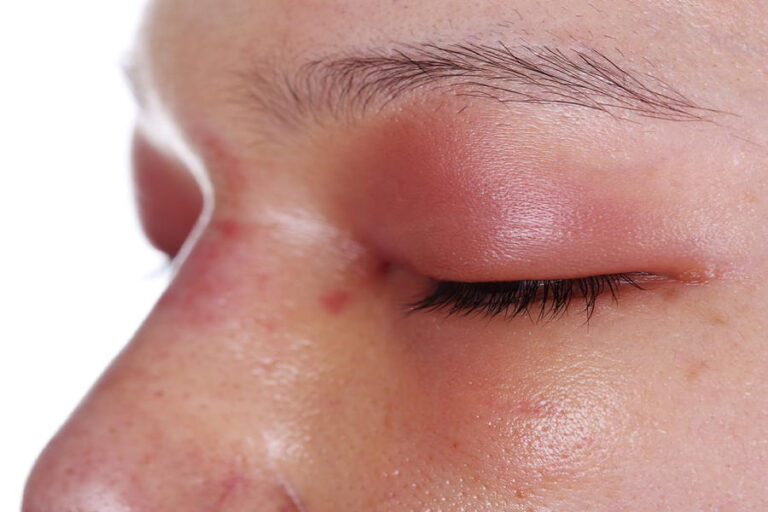Minimalism in everyday life: how fewer possessions lead to more freedom
In our consumer-oriented society, we often feel overwhelmed by our own things. Minimalism offers a way out of this dilemma.
The minimalist lifestyle is more than just a trend; it is a conscious decision to get rid of unnecessary clutter and only keep what is really important. By reducing to the essentials, we can gain more freedom and clarity in our lives.
In this article, you will learn how a minimalist lifestyle can lead to more satisfaction and how you can implement practical ways to transform fewer possessions into more quality of life.
What does minimalism mean in everyday life?
Minimalism in everyday life is more than just a trend, it is a conscious decision for a simpler lifestyle. The term „minimalism“ originally comes from the art scene, but has developed into a comprehensive philosophy of life. Living a minimalist lifestyle means living according to the „less is more“ principle, letting go of everything superfluous and only keeping things that you really need or that bring you real joy.
A minimalist lifestyle focuses on the essentials and encourages a conscious examination of consumption and possessions. It is about freeing yourself from the pressure of constantly having to buy things and instead leading a life that is characterized by inner values and meaningful experiences.
The philosophy behind the minimalist lifestyle
The philosophy of minimalism is based on the idea that true happiness does not come from material possessions, but from meaningful experiences, relationships and inner contentment. Minimalism challenges the common assumption that more consumption leads to more happiness. Instead, it promotes a conscious use of resources and a focus on what is really important.
As a quote from Marie Kondo
says in her book „Magic Cleaning“: „When we get rid of the things that no longer serve us, we make room for new experiences and a deeper connection to ourselves and others.“
| Aspects | Traditional lifestyle | Minimalist lifestyle |
|---|---|---|
| Consumption | Frequent purchase of unneeded items | Conscious purchase of only necessary items |
| Ownership | Accumulation of property | Reduction to the essentials |
| Happiness | The search for happiness through material possessions | Happiness through experiences and relationships |
Why we have too much of everything today
In today’s society, we are inundated with advertising and marketing messages that constantly suggest we need to buy more to be happier. This leads to a culture of abundance, where we buy more than we need and own more than we can use.
Minimalism offers a way out of this cycle by encouraging us to rethink our consumption habits and focus on what is really important. By reducing clutter and focusing on the essentials, we can lead a more fulfilling and conscious life.
The 6 most important benefits of a minimalist life
A life with fewer possessions offers numerous advantages. By reducing to the essentials, people can gain more time, less stress and a higher level of satisfaction.
More time through fewer possessions
A minimalist lifestyle gives you more time because you spend less time buying, organizing, cleaning and maintaining items. Buying a product takes time – from research to transportation to maintenance.
By owning less, you reduce the amount of time you spend managing your possessions and gain more time for meaningful activities.
Reduced stress and better health
Fewer possessions mean less stress, as an uncluttered environment automatically lowers your stress levels. This has a positive effect on your physical and mental health.
A minimalist lifestyle promotes a healthier way of life by focusing on the essentials and reducing unnecessary distractions
Clarity and focus in everyday life
Minimalism promotes clarity and focus in everyday life, as fewer objects and obligations distract you. This allows you to concentrate better on the essentials.
A clear and uncluttered environment supports your ability to prioritize and achieve your goals.
Increase your personal sense of happiness
Studies show that people who place less value on material possessions often have a higher sense of personal happiness. This is because they have more time for meaningful activities and relationships.
A minimalist lifestyle allows you to prioritize what is really important to you and thus lead a more fulfilling life.
Financial benefits through conscious consumption
The conscious consumption that goes hand in hand with minimalism leads to considerable financial benefits. You spend less money on unnecessary things and can save more or invest in experiences.
By making conscious purchasing decisions, you can reduce your expenditure and improve your financial situation.
Positive effects on the environment
A minimalist lifestyle has a positive impact on the environment, as less consumption leads to less use of resources, less waste and a smaller carbon footprint.
By reducing your consumption, you contribute to a more sustainable future and minimize your ecological footprint.
Minimalism within your own four walls
A minimalist home starts with a conscious decision to tidy up your own four walls. This process can not only lead to more order and clarity, but also increase well-being.
The KonMari method: cleaning out according to the happiness principle
The KonMari method, made famous by Marie Kondo’s book „Magic Cleaning“, is a simple and effective method for decluttering. The aim is to sort out everything that doesn’t make you happy. Each item is picked up and asked whether it brings joy.
This method revolutionizes decluttering by focusing on the joy that an item brings. It’s not about throwing things away, but about getting rid of things that don’t have a positive impact on your life.
The Pareto principle: the 80/20 rule when decluttering
The Pareto Principle, also known as the 80/20 rule, states that about 20% of possessions are used 80% of the time. By identifying and focusing on this 20%, you can create more space and clarity.
This principle helps to identify the most important things and separate them from the rest, which leads to a simplification of everyday life.
Quality instead of quantity: conscious purchasing decisions
An important aspect of minimalism is making conscious purchasing decisions. It’s about choosing quality over quantity and investing in a few, high-quality items that will last a long time and give pleasure.
Conscious consumption can not only save you money, but also help the environment and have a positive impact on your own lifestyle.
Minimalism within your own four walls does not mean creating a sterile space, but rather surrounding yourself with things that are personally meaningful and give your home character.
Digital minimalism: less distraction, more concentration
In a world that is increasingly characterized by digital stimuli, digital minimalism is gaining in importance. We are constantly surrounded by information and notifications that demand our attention and can distract us from more important things.
An important step towards digital minimalism is organizing our digital environment. This includes managing our emails, looking after our smartphones and using media consciously.
Clear out your email inbox and unsubscribe from the newsletter
A full email inbox can be stressful and make important messages hard to find. Start by unsubscribing from newsletters you never read. Organize important emails into folders and delete old messages that are no longer relevant. This will help you to keep an overview and reduce digital clutter.
| E-mail management | Advantages |
|---|---|
| Unsubscribing from newsletters | Fewer incoming e-mails |
| Create folder | Better organization |
| Delete old e-mails | Reduced digital clutter |
Clean up your smartphone: reduce apps, photos and contacts
Our smartphone is often full of apps that we rarely or never use. Uninstall them to free up storage space and have fewer distractions. Also reduce your digital photos and contacts by deleting blurry or duplicate images and removing contacts you haven’t communicated with in years.
Conscious media use and digital time-outs
Practice conscious media use by setting fixed times for social media, news and entertainment. Schedule regular digital downtime to give your mind a rest. This can help to improve concentration and reduce stress.
By following these steps, you can declutter your everyday digital life and focus on the essentials.
Minimalism in the mind: 5 ways to achieve more mental clarity
By applying mental minimalism, we can improve our mental clarity and lead a more fulfilling life. Mental minimalism means freeing ourselves from unnecessary thoughts and distractions in order to achieve greater calm and concentration.
Focus by avoiding multitasking
Multitasking is a myth; our brains cannot effectively handle multiple tasks at the same time. Instead, we should focus on one task at a time to increase productivity and efficiency.
Reduce worries and negative thoughts
Negative thoughts and worries weigh on our minds. By learning to identify and let go of these, we can achieve greater inner peace.
Mindfulness and meditation
Mindfulness and meditation are effective tools for calming the mind. Even a few minutes of daily practice can make a big difference.
To-do lists for a clear head
To-do lists help to free the mind from the burden of having to remember everything. They create mental space for creativity and concentration.
Shed perfectionism
Perfectionism can lead to stress and dissatisfaction. By letting go of perfectionism, we can develop serenity and lead a more balanced life.
| Strategy | Advantage |
|---|---|
| Avoid multitasking | Increased productivity |
| Practicing mindfulness | Reduced stress |
| Use to-do lists | Better concentration |
10 practical tips for a minimalist everyday life
With these ten practical tips, you can make your everyday life minimalist and improve your quality of life.
A minimalist lifestyle starts with simple changes to your daily habits.
Establish a morning routine without a cell phone
Start your day without the distraction of your cell phone. Instead, use an alarm clock and enjoy the peace and quiet of the morning.
Establishing a morning routine without a cell phone is a powerful way to start the day consciously and without digital distractions.
Use this time for meditation, journaling or simply for quiet reflection.
Use sharing concepts with neighbors
Share items that you rarely need with your neighbors. Platforms like nebenan.de make it easy.
Using sharing concepts with neighbors is not only sustainable, but also reduces your own possessions.
Unsubscribe from mailbox advertising
A „No advertising“ sign on the letterbox not only saves paper, but also time.
Reduce unwanted advertising and stop sorting through paper unnecessarily.
Organize your closet according to the capsule wardrobe principle
The capsule wardrobe principle helps you to reduce your closet to a few easily combinable pieces.
Concentrate on pieces that suit your personal style and give you pleasure.
Shop consciously and avoid impulse purchases
Ask yourself before every purchase whether you will enjoy the item in the long term.
Conscious shopping and avoiding impulse purchases are central practices of minimalism.
Introduce regular decluttering routines
Regular decluttering helps to keep your space and your mind clear.
Schedule regular times for decluttering.
Simplify your household and reduce cleaning products
A simple household is easier to maintain. Reduce your cleaning products to the essentials.
A minimal budget promotes a stress-free environment.
Spending time in nature
Spend time in nature to relax and recharge your batteries.
Nature offers a wonderful opportunity to find peace and quiet.
Plan conscious breaks and idle time
Plan conscious breaks to give your mind and body a rest.
Deliberately doing nothing can be very relaxing.
Apply the „one in, one out“ rule
For every new item you bring in, you should remove an old one.
This rule helps to keep your possessions in balance.
Minimalism in relationships and social contacts
Minimalism in relationships means focusing on the essentials and cultivating meaningful connections. By rethinking our social contacts, we can deepen our relationships and improve our quality of life.
Quality over quantity in friendships
An important aspect of minimalism in relationships is focusing on quality rather than quantity in friendships. This means focusing on the people who really enrich us and with whom we can have authentic relationships.
- cultivate deep, meaningful connections
- Reduce superficial contacts
- focus on people who enrich us
Learning to say no and set boundaries
Learning to say no is an important skill for every minimalist. By clearly communicating our boundaries, we protect our time and energy for the things and people that are really important to us.
This helps us to set our priorities and strengthen our relationships.
Letting go of expectations of others
We are often disappointed when others do not meet our expectations. This can be a sign that our expectations are too high. By learning to accept others as they are, we can improve our relationships and increase our own satisfaction.
By applying minimalist principles to our social relationships, we can deepen our connections with others and improve our quality of life.
Recommended books on the topic of minimalism
For those looking for inspiration for a minimalist lifestyle, books can be a valuable resource. They offer not only theoretical knowledge, but also practical tips and new perspectives to simplify everyday life and experience more joy.
Magic Cleaning by Marie Kondo
„Magic Cleaning“ by Marie Kondo is a world bestseller that introduces the KonMari method. By decluttering according to the happiness principle, you can transform your home and your life.

Less is More: The joy of omission
„Less is More“ shows how you can free yourself from unnecessary ballast. The book gives practical tips and criticizes consumption, which makes you want to do less.

Don’t worry – live! by Dale Carnegie
„Don’t worry – live!“ by Dale Carnegie does not deal directly with minimalism, but it does fit in with the topic of mental minimalism. It shows how to free yourself from worries and fears
The path to more freedom through conscious letting go
Minimalism is more than just a lifestyle – it is a path to more freedom and satisfaction. It is a personal journey where everyone has to find their own path that suits their needs and goals.
It does not mean doing without in a negative sense, but consciously letting go of what does not serve us in order to create space for what is really important to us. Start with small steps and gradually integrate minimalist practices into your everyday life.
Minimalism is not an end in itself, but a means to achieve more freedom, peace and contentment in your life. Ultimately, it’s about how much joy and meaning you experience in your life – fewer things, more experiences, more life.






